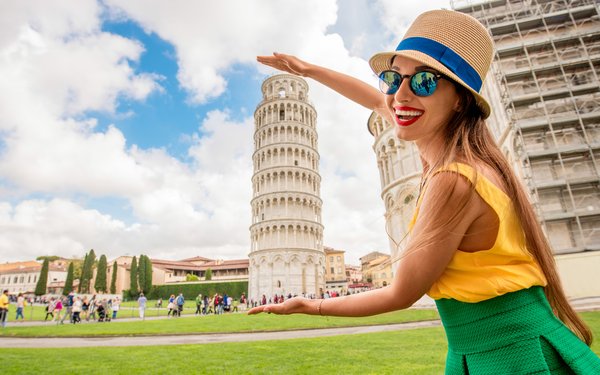Virtual Reality Not Seen As Substitute For Travel
- by Chase Martin , June 16, 2017

As virtual reality and artificial intelligence make their way into the travel industry, consumers may not be fully on board.
Most adults prefer traditional traveling over VR experiences and more than half say tour guides and hotel staff could not be replaced by AI, according to a new study.
The study was conducted by European touring company Italy4Real and comprised a global survey of 1,000 adults.
While virtual reality can be beneficial for viewing remote destinations, it doesn’t appear to be a direct threat to actually travelling.
More than three quarters (81%) of adults said VR can’t replace travel and almost all (92%) said they would not consider visiting a destination in virtual reality to equate having been to that destination.
The majority (90%) said VR lacks the sensory experiences of traveling. More than three quarters (77%) cited local food and almost as many (69%) said meeting new people, according to the study. Other potential downsides of VR cited include smells, sounds and general atmosphere.
However, VR could be an advantageous alternative to travel in certain cases.
More than three quarters (77%) said VR travel could be beneficial if the user is incapable of physically traveling. Another advantage of VR cited is the ability to go ‘wherever you want, whenever you want’ without the associated costs.
On the artificial intelligence side of travel, sentiments seem to be somewhat split.
More than half (52%) said AI can replace human travel agents while almost three quarters (67%) said tour guides or hotel staff could be replaced by AI, according to the study.
The general thought appears to be that AI can fulfill operational roles, but roles requiring personalized interactions are more suited for humans.
However, one of the focuses within the AI space has been developing systems that can engage with customers in real-time on an individual level. While the capabilities may be there, the perception appears to need some time.
Artificial intelligence has already made its way into the planning and booking segment of travel.
For example, Boston-based travel company Lola manages travel booking using a combination of AI and human interaction. The startup, launched last year by the co-founder of Kayak, uses AI to carry out operational and repetitive tasks and human employees to leverage the AI’s results in interacting with customers.
JetBlue also plans to integrate AI in a similar capacity within its online trip planning portal.
The airline’s JetBlue Vacations arm just launched a service that can create personalized hour-by-hour vacation itineraries for travelers.
“When you hear artificial intelligence, it’s easy to envision a far-off future seen in the movies,” Umang Gupta, president of JetBlue Vacations, said in a statement. “But AI is ready to change how we now plan travel.”
The activities are suggested based on the traveler’s stated preferences on sixteen categories, including budget and are pulled from a database of more than 150 destinations that is curated by local area experts. JetBlue Vacations partnered with Utrip to integrate its AI ‘destination discovery and planning platform’ on the back-end.
“Our partnership with Utrip demonstrates that we can transform the vacation experience using both technology and a human touch,” Gupta stated.


